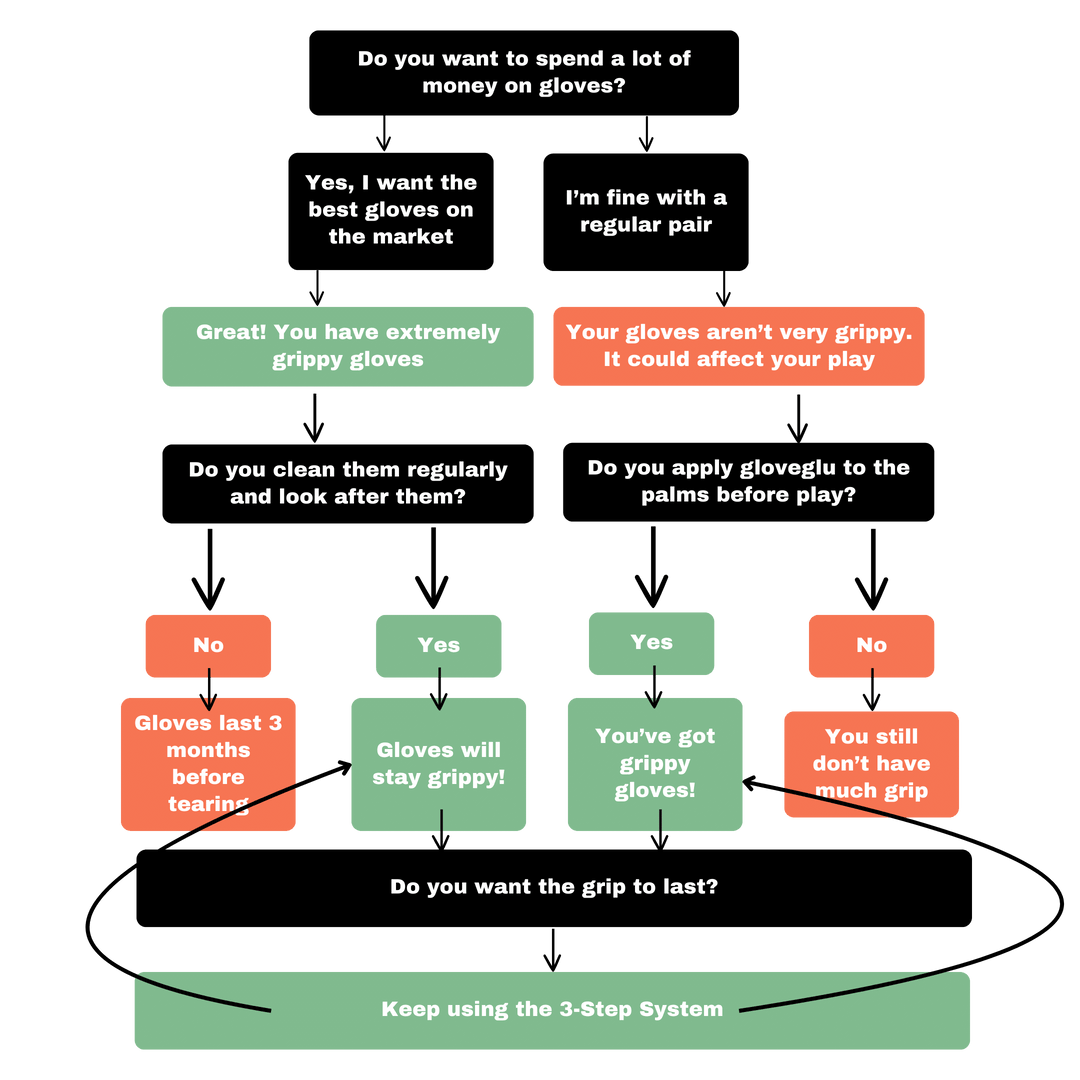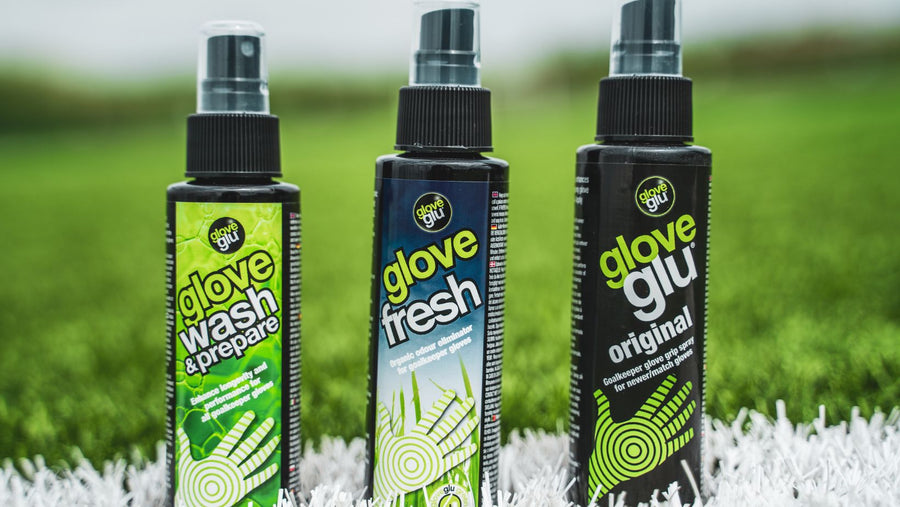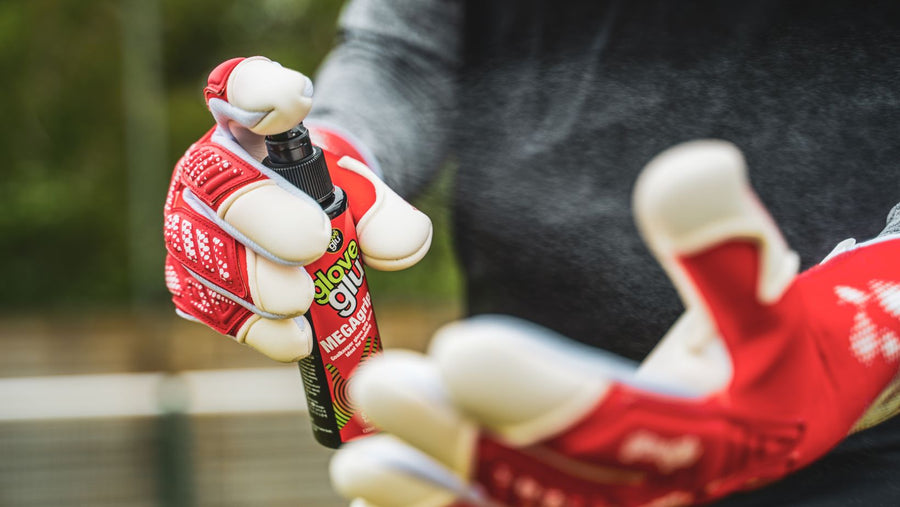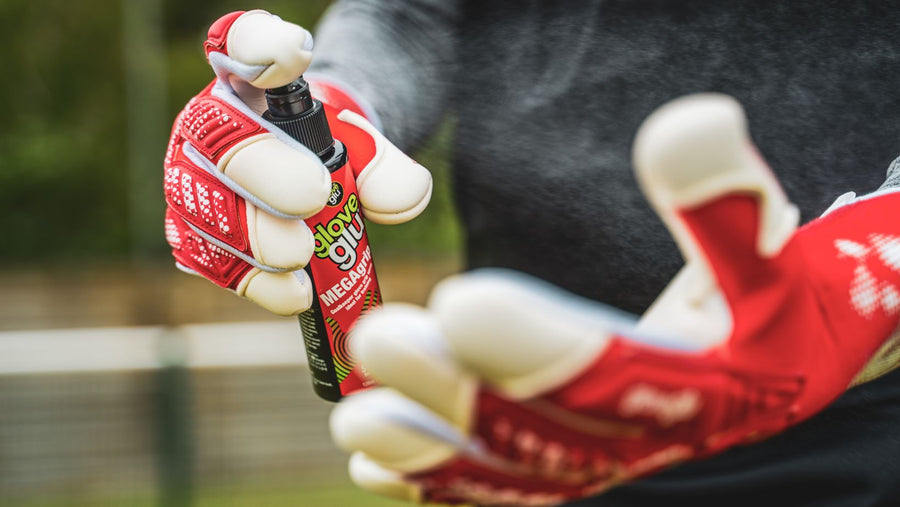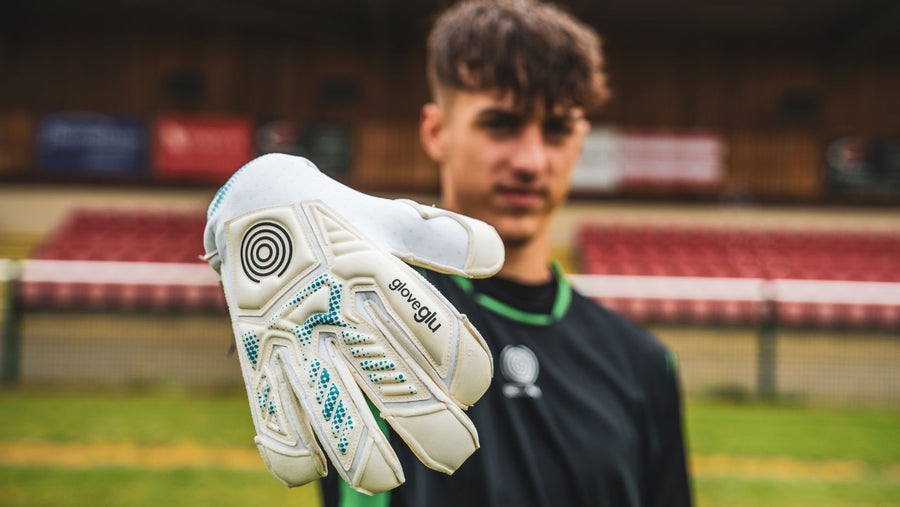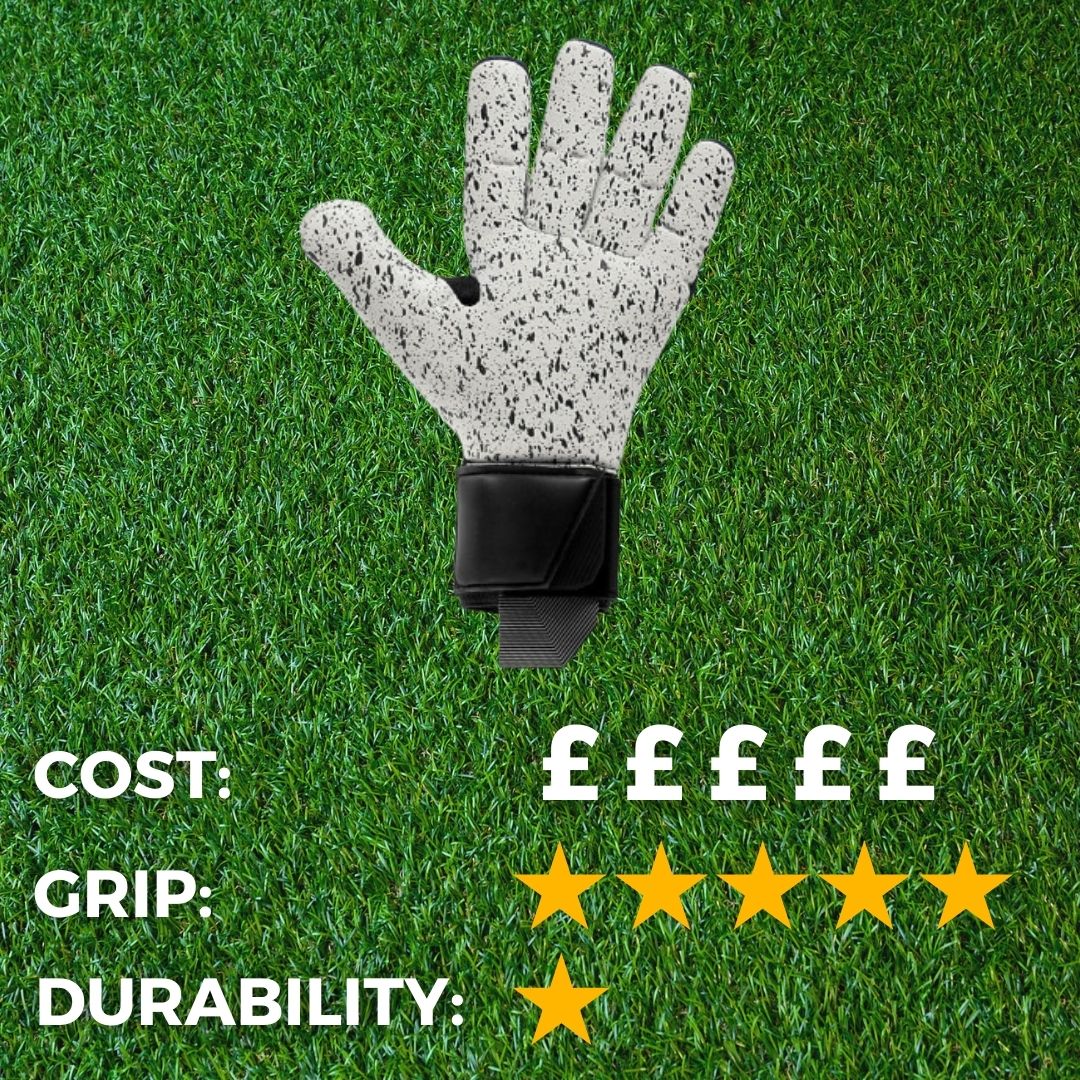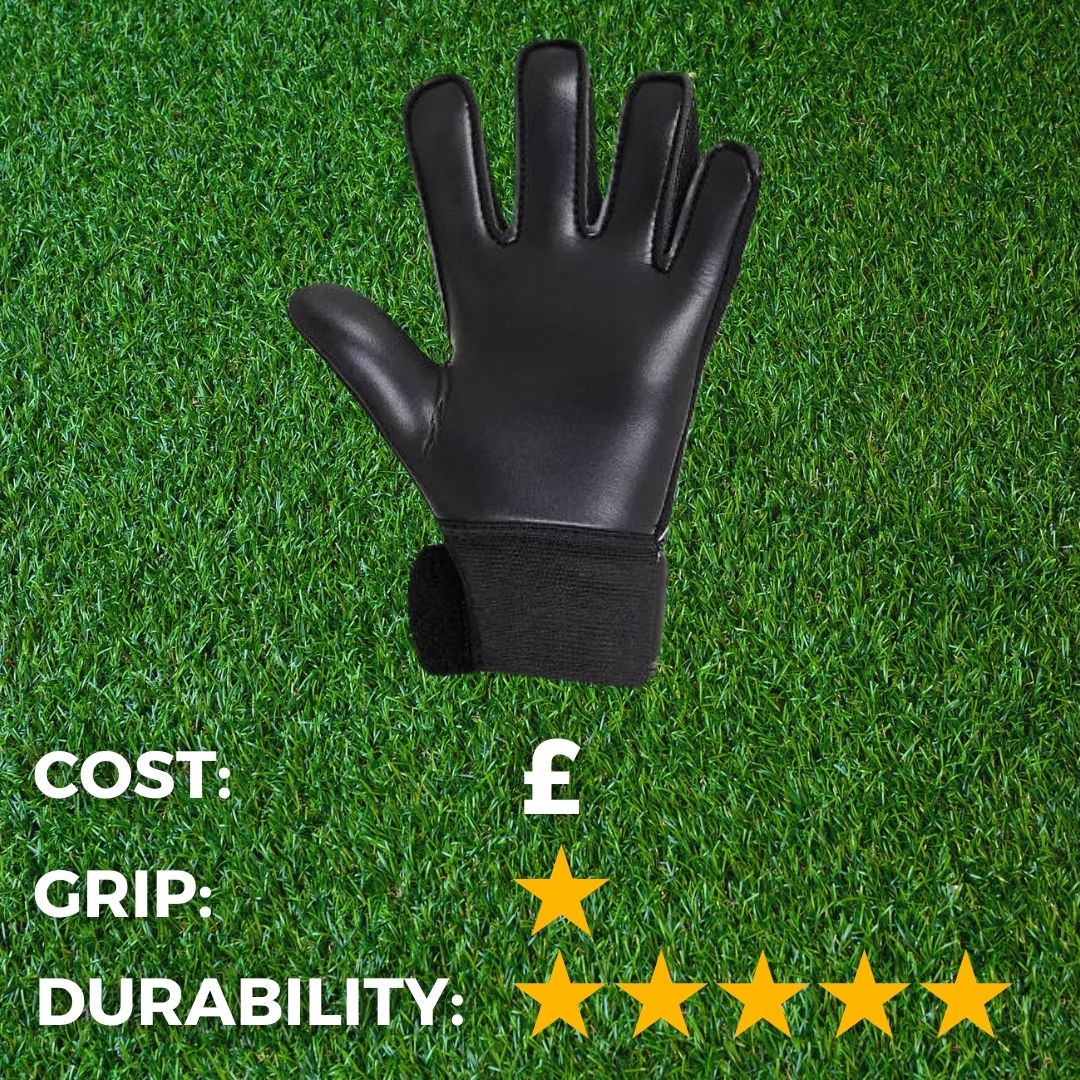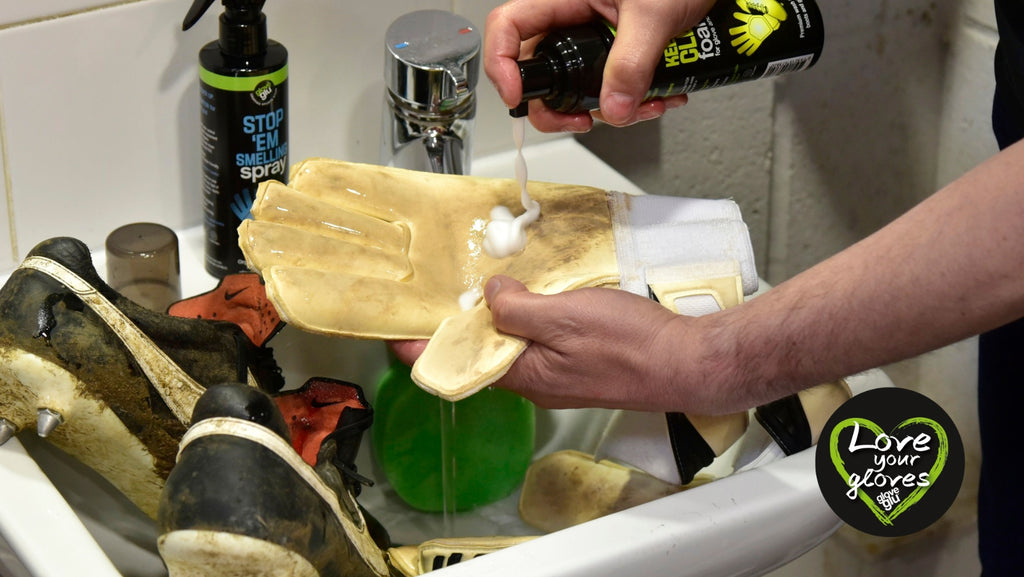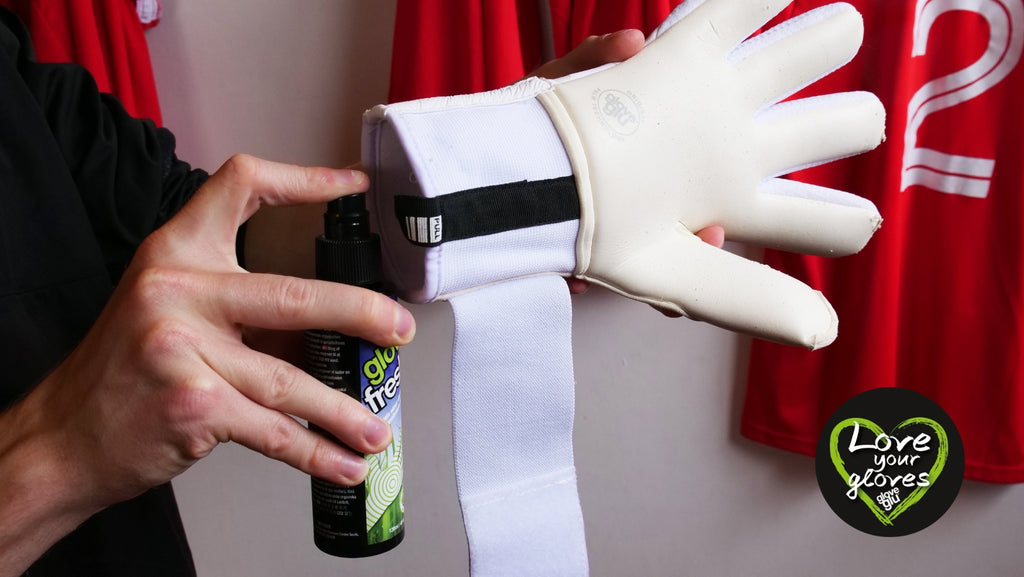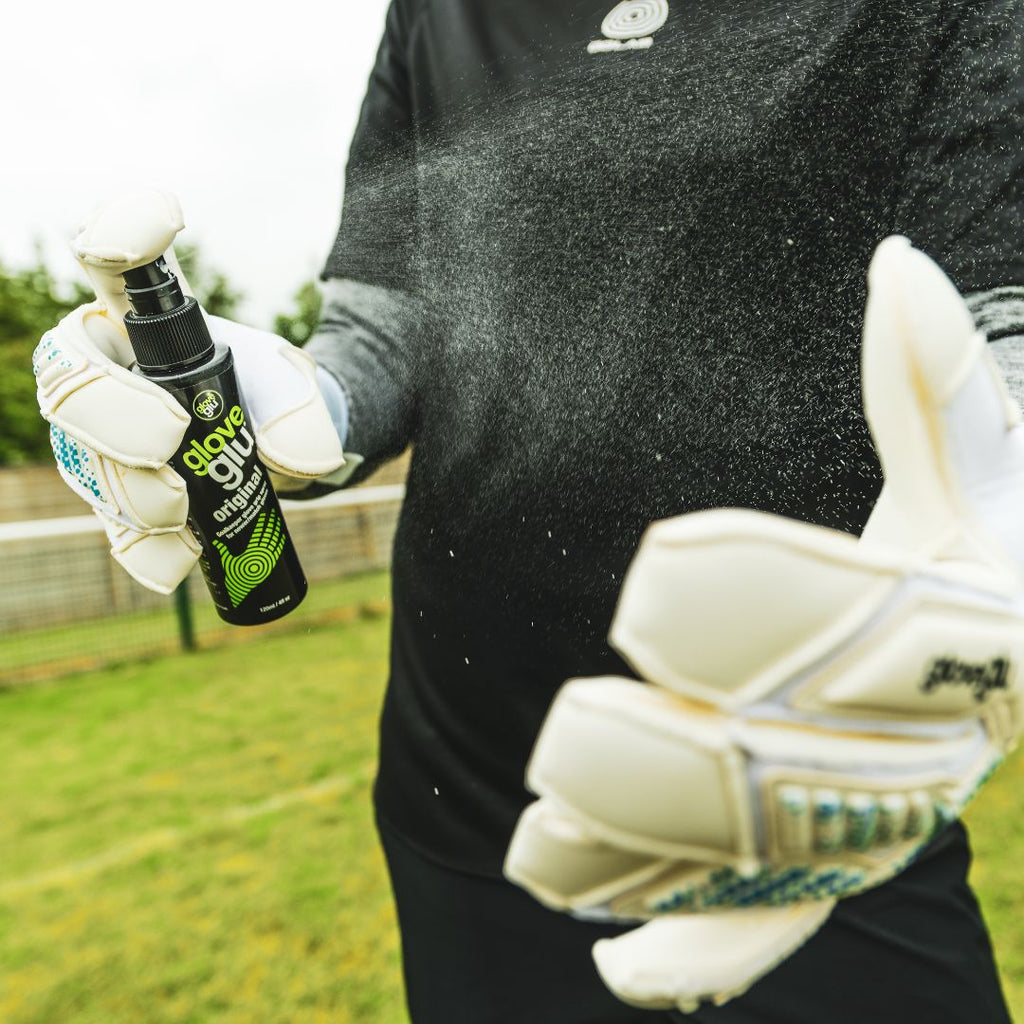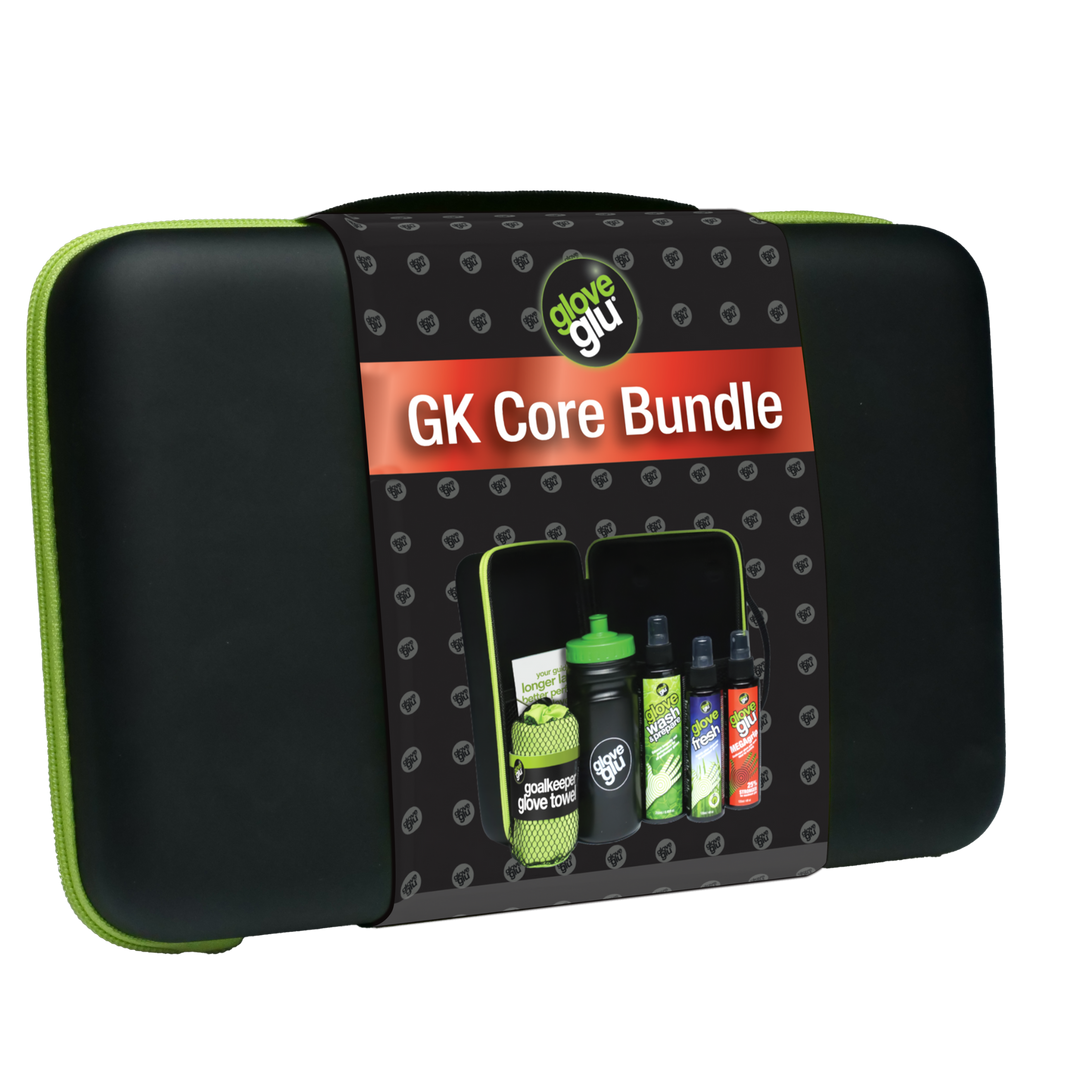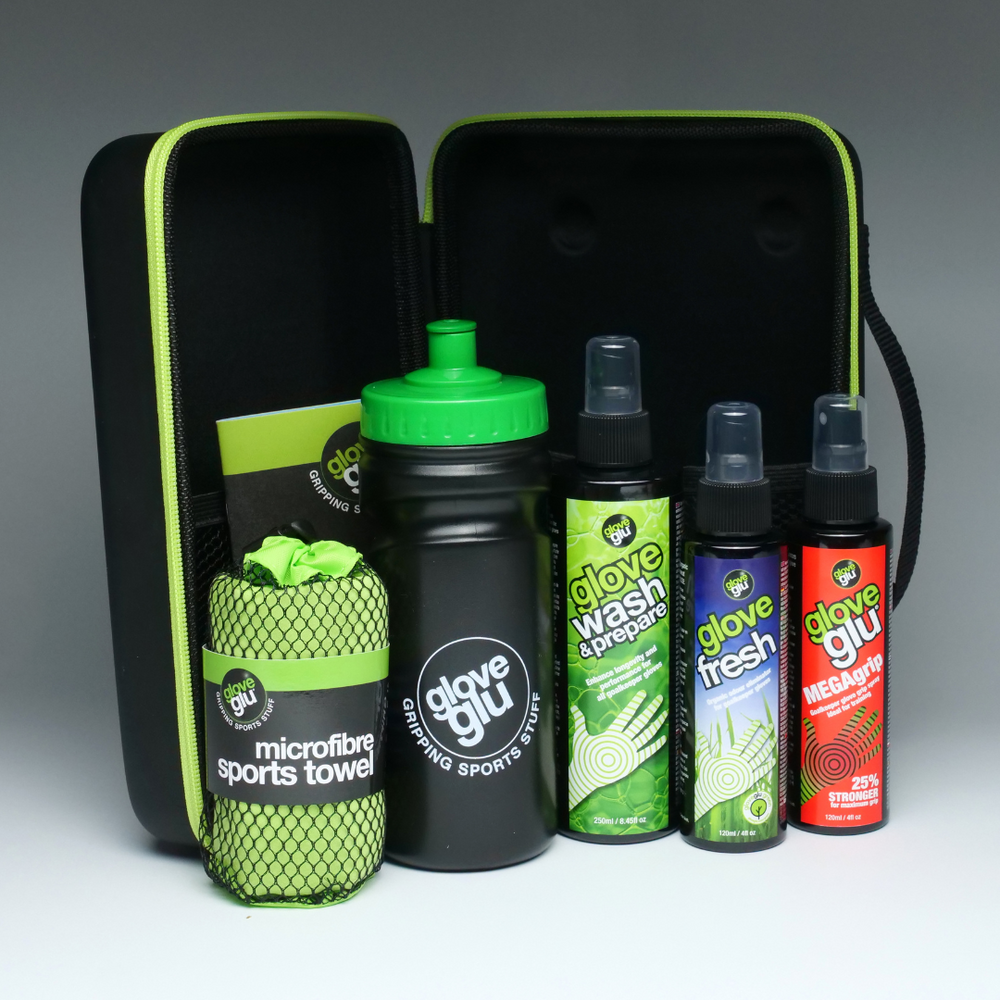The Glove Problem:
Expensive Latex is soft
Premium goalkeeper glove brands produce extremely grippy gloves. How? They spend lots on R&D and use super soft latex.
The gloves are great, no denying that. But to be grippy, latex must be soft. And when it's soft, that means it's less durable.
Problem 1: Expensive gloves (grippier gloves) don't last long before looking worn
Cheap Latex is hard
You get some new gloves for around £20-£40. You notice they aren't as grippy as the premium gloves.
Why? Because the latex is harder. It contains more plastic because it's been made cheaper. But the good news? Harder latex can take more damage!
Problem 2: Cheap gloves last a long time, but they ain't grippy!

Glove prices rising
So now we know that expensive gloves DOES NOT = longevity. But top brands are still trying to make the best gloves for their pro keepers, so costs are rising.
Problem 3: Regular keepers are spending more on goalkeeper gloves
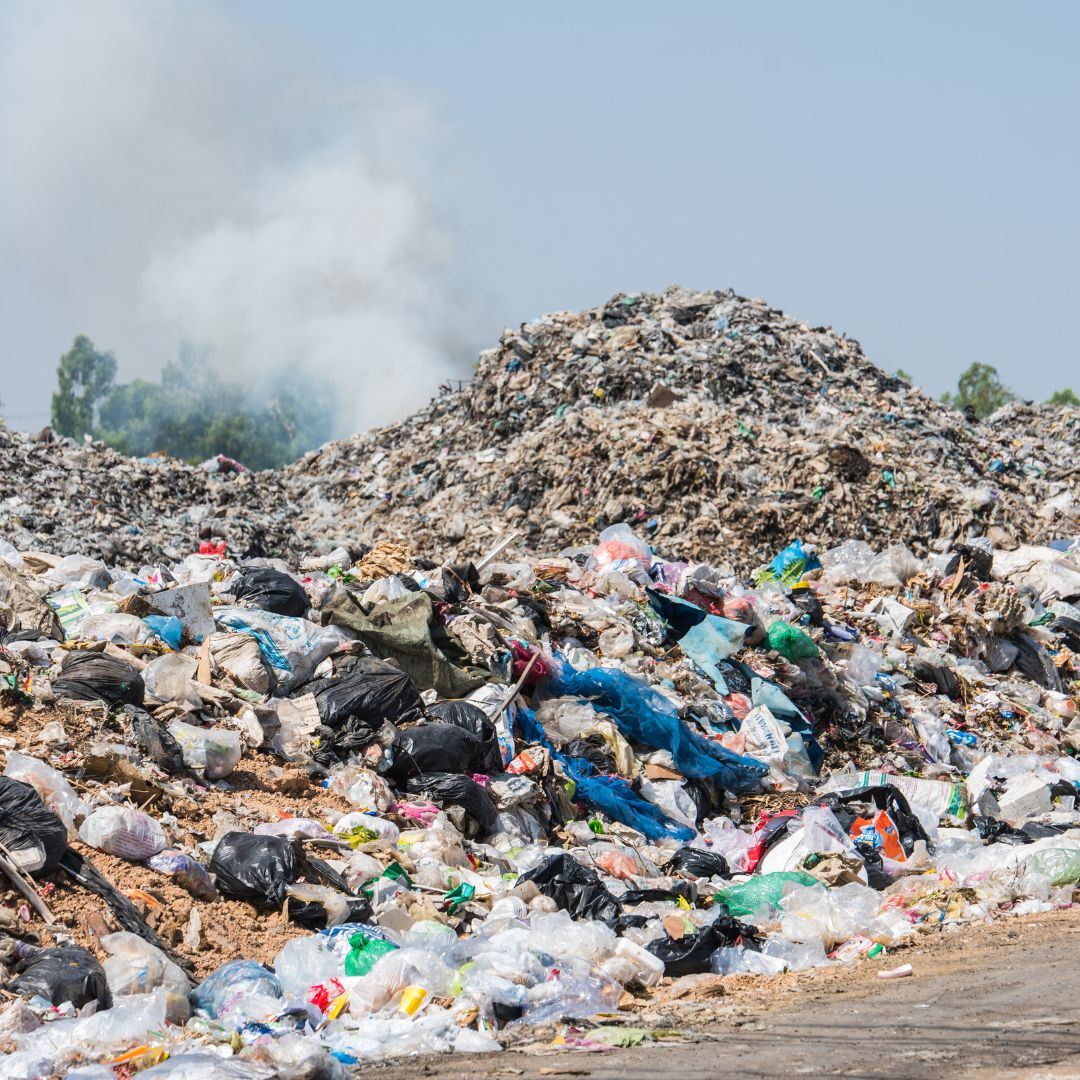
Waste
The glove business is booming. Great for glove brands, terrible for the environment. Pro Keepers get a new pair every game. The brands are more than happy for you to copy them and buy 3+ pairs a season.
Problem 4: Gloves are getting wasted
THE GLOVE SOLUTION:
Imagine a spray that makes ANY glove grippier, even if the glove is cheap, or torn to bits, and can be used again and again and again...
Great! gloveglu grip spray was introduced to the World.
But gloves still got worn out quickly. Grip didn't last long on expensive gloves. Oh, and they smelled awful...
So the 3-Step System was born:
Next time you buy goalkeeper gloves, remember this:
This is the process we see goalkeepers go through time and time again.
Keepers that use glove care save money & have better performing gloves
It's as simple as that.
